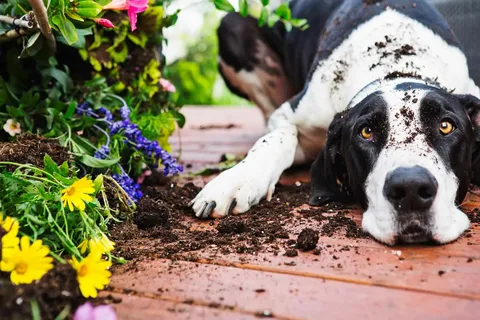Pets are an essential part of our lives, and our responsibility is to keep them safe and healthy. However, there are several things that we use in our daily lives that can be poisonous to our furry friends. It is crucial to be aware of these things to prevent accidental poisoning. Here are some of the things you didn’t know were poisonous to your pets.
Plants
Plants are an excellent addition to any home, but some plants can be poisonous to pets. Here are some of the common plants that can be harmful to pets:
Sago Palm
This plant is often used in landscaping, but all parts are toxic to pets, especially the seeds.
Lilies
All types of lilies, including Easter lilies and Tiger lilies, can cause kidney failure in cats.
Aloe Vera
Although Aloe Vera benefits humans, it can be toxic to pets if ingested.
Foods
Some human foods are toxic to pets. Here are some of the common foods to avoid:
Chocolate
Chocolate contains a compound called theobromine, which can be toxic to pets, especially dogs.
Grapes and Raisins
These foods can cause kidney failure in dogs.
Onions and Garlic
These foods contain compounds that can damage pet red blood cells.
Chemicals
Chemicals are commonly used in households and can harm pets if ingested. Here are some of the common chemicals to avoid:
Antifreeze
This chemical contains ethylene glycol, which can be fatal to pets if ingested.
Cleaning products
Cleaning products contain chemicals that can cause vomiting, diarrhoea, and even death if pets ingest them.
Pesticides
Pesticides can cause vomiting, seizures, and even death if ingested by pets.
Medications
Medications are designed to help us, but some can harm pets if ingested. Here are some of the common medications to avoid:
Ibuprofen
This medication can cause stomach ulcers and kidney failure in pets.
Acetaminophen
This medication can cause liver damage in pets.
Antidepressants
Antidepressants can cause vomiting, lethargy, and even seizures if ingested by pets.
Household Items
Some household items can be harmful to pets if ingested. Here are some of the common household items to avoid:
Batteries
Batteries contain corrosive materials that can cause chemical burns and other complications if ingested by pets.
Glues
Glues, especially those that contain cyanoacrylate, can cause gastrointestinal obstruction in pets.
Essential oils
Can cause vomiting, diarrhea, and even liver failure in pets if ingested.
How to prevent accidental poisoning?
Here are some tips to prevent the accidental poisoning of your pets:
- Store all chemicals, medications, and household items in secure cabinets.
- Keep all foods that are harmful to pets out of reach.
- Keep all plants that are harmful to pets out of reach.
- Regularly check your yard for any poisonous plants.
- Be aware of your pet’s surroundings, especially when they are outside.
Contact your veterinarian immediately if you suspect your pet has ingested something poisonous.
Conclusion
Several things can be poisonous to pets, including plants, foods, chemicals, medications, and household items. It is essential to be aware of these items and take preventive measures to protect your furry friends. Remember, prevention is always better than cure.
DIY dog fence
As a bonus tip, if you have a pet dog, you might consider installing a DIY dog fence in your yard. This fence will keep your dog safe and prevent them from wandering off into the neighbor’s yard or the street. A DIY dog fence is a cost-effective solution that is easy to install and customize according to your needs. It also allows your pet to roam around the yard without being tied to a leash.
Several types of DIY dog fences include physical barriers, electric fences, and wireless fences. The most effective and secure options are physical barriers such as chain-link or wooden fences. Electric fences and wireless fences use a signal to create an invisible boundary around your yard, and they are ideal for pet owners who don’t want to block the view of their yard.
